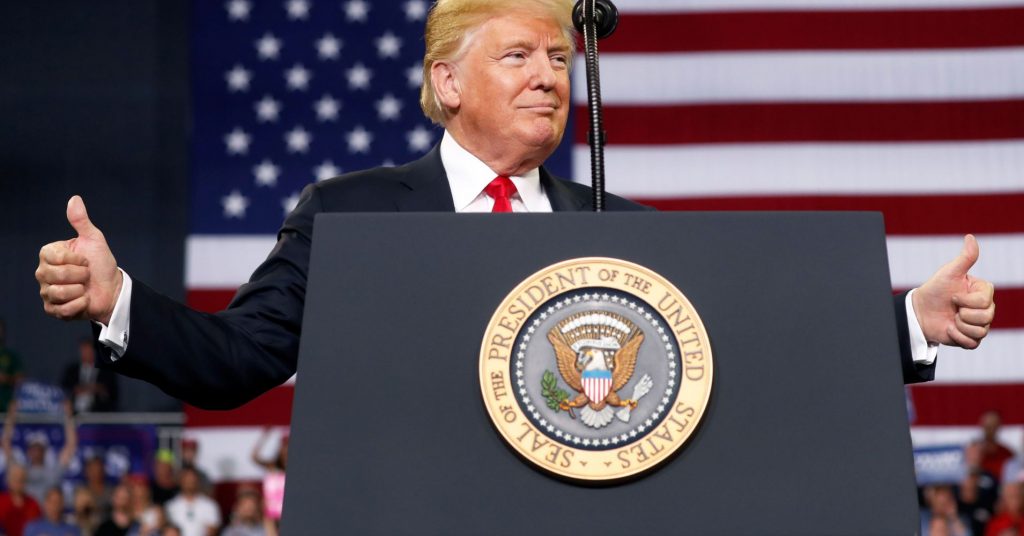
Trade wars have already dinged multinationals, but tensions could make waves in an unexpected corner of the market.
Small caps, long seen as a safe haven against geopolitics, could actually be more at risk than investors expect, says one strategist.
“If you look at the headline arguments, which are ‘smaller caps are more domestically focused,’ I think that it’s fairly straightforward, but what we look at is really the impact to profitability,” Ralph Bassett, deputy head of North American equities at Aberdeen Standard Investments, said Thursday on CNBC’s “Trading Nation.”
Small caps’ high level of sales exposure to domestic markets is typically seen as a hedge against global headwinds such as tariffs and currency exchange. However, higher inflation tied to increased tariffs would likely squeeze small-cap companies’ margins, says Bassett.
“EBITDA margins are lower for smaller companies, and when you do the math in terms of the impacts that inflation potentially has on corporate profit margins, they just can’t absorb it as easily,” he said.
The S&P small cap 600 index trades at 11.5 times trailing earnings, while the S&P 500 trades at nearly 20 times trailing earnings. A company’s EBITDA margin is a measure of profitability against sales, and a higher margin correlates with lower operating expenses.
Roughly 35 percent of the Russell 2000 currently has negative earnings, says Bassett, so he focuses on a mix of growth and value in his small-cap picks.
“The market is really being driven from our view in terms of stocks that are propelled by momentum and growth,” he said. “We’re more focused on finding that balance where there is downside protection if markets do encounter a more difficult period over the next several years.”
He said one stock that fits the bill is G-III Apparel Group, whose brands include Calvin Klein.
“If you were to rewind 12 months ago, this was an unloved company by the market: one because it was in retail which was out of favor; two, they were doing a fairly sizable acquisition,” Bassett said.
Shares had been in free fall from mid-2015 to November. Its acquisition of Donna Karan in July 2016 triggered a wave of selling that took it down to a five-year low in May 2017. Since then, it has rallied 155 percent.
“Over the last three quarters, … they’ve shown execution and really are showing improving and accelerating trends in their wholesale business which sells Calvin Klein and Tommy Hilfiger to many markets around the world,” he said.
Its shares have rallied 23 percent during the past six months, ahead of the 10 percent gain on the small cap-focused Russell 2000. It hit a 52-week high in early June but is still a 60 percent rally from its records set in July 2015.

